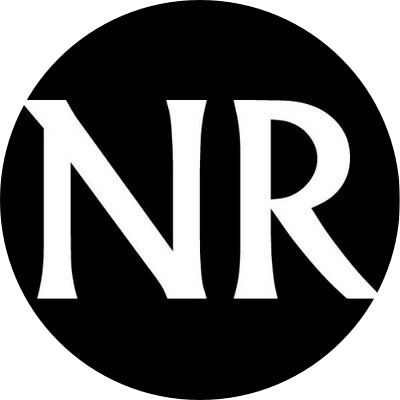Debating Gillette's 'toxic masculinity' ad
The 360 is a feature designed to show you diverse perspectives on the day’s top stories.
What’s happening
The grooming brand Gillette debuted an ad last week called “We Believe: The Best Men Can Be.” The commercial apparently intends to challenge “toxic masculinity” and features scenes of boys bullying each other, men harassing women, and audio from news reports on the #MeToo movement. A male voiceover breaks in to ask, “Is this the best a man can get?” — a play on the company’s longtime slogan — and by the end of the ad, men are breaking up fights, silencing catcalls and presented as important role models to young boys.
“We believe in the best in men. To say the right thing. To act the right way. Some already are, in ways big and small. But some is not enough. Because the boys watching today will be the men of tomorrow,” says the ad’s deep-voiced narrator.
The ad quickly ignited a cultural debate earning both praise and digs. While some applauded it for challenging “Boys will be boys” stereotypes and presenting kindness and sensitivity as strength. others called it an exploitative attempt to capitalize on #MeToo.
Everyone talking about the ad can agree, though, that it touched a social nerve.
Perspectives
Men angry about the ad are proving the ad’s point. “Anyone freaking out about a depiction of men intervening to stop bad behavior of other males should ask themselves why they are so triggered. This is simply a fairly anodyne ad encouraging men to rise to the occasion in the #MeToo era. The mere suggestion that perhaps men haven’t always behaved perfectly shouldn’t cause such an uproar, and it likely wouldn’t if it didn’t strike so close to home.” — Kristen Powers,

“It would seem the most vocal defenders of manly masculinity appear frightened, not dominant. They act as if using a brand critical of male violence could make them somehow less of a man, which is not self-reliance but rather the worst kind of dependence. Is it possible that by investing so deeply in traditional masculinity, those that wear it as a badge have become hobbled and weak?” — Patrick A. Coleman,

The ad is adopting social justice to make a buck. “The grooming giant is just the latest corporate brand to adopt social justice in the name of profit. … Instead of attacking traditional masculinity, our culture would profit from a lot more of it. The greatest risk and adventure a father can face is being there for his kids, teaching them right from wrong, and demonstrating how it’s done. Being a good dad is the best a man can get.” — Jon Gabriel,

The ad attacks bullying, not masculinity. “There were a couple of undercurrents in the Gillette ad that suggested feminist influence — the term ‘toxic masculinity’ should itself be toxic — but overall the ad is pretty tame, even valuable. I have no idea if it’s the best way to sell razors, but as social commentary, it’s not offensive … These images didn’t strike me as a reproof of masculinity per se but rather as a critique of bullying, boorishness, and sexual misconduct.” — Mona Charen,

This ad is not trying to emasculate you; it’s asking you to treat people with respect. “Many of the hundreds of thousands of complaints against ‘The Best a Man Can Be’ come from men who feel that the ad, which was directed by a woman, paints all men as bullies, sexist, or predators. I’m not an advertising expert, but it’s clear to me this ad isn’t calling you names. It’s asking you to be an example to your children by not calling other people names. This ad is not trying to emasculate you; it’s asking you to treat people with respect.” — Christopher Muther,

The ad displays the great value of good role models. “These ads can serve a valuable purpose by showing off role models that can be copied. There are lots of men who don’t want to stand by when their friends do something obnoxious, but they aren’t sure how to intervene. You don’t want to be a scold or a prig, after all. But a commercial like this provides opportunities to subtly show off ways to intervene without endangering friendships or making a bigger deal out of something than it deserves.” – Kevin Drum,

This is a war on masculinity. “There is literally a war on masculinity in America. It’s being waged in classrooms where professors are trying to convince a new generation of students that there’s something wrong with men who want to protect and provide for their families. They want you to believe little boys who climb trees and tussle on the playground should be medicated. They believe there’s something evil about letting boys be boys.” — Todd Starnes,

The ad shows men as destined to be predators. “It’s not only wrong to insinuate that all boys will become sexual predators and bullies, as if the two are even equal, but in doing so, Gillette virtue-signals more than it sells razors in this ad. This is not a good look for a company and an even worse message to our boys who should be loved, cherished, and guided through puberty and beyond — not beaten over the head with a presumptive, jaded message that masculinity is innately harmful to men and women alike.” — Nicole Russell,

If Gillette really cared about toxic masculinity, it should stop advertising on Tucker Carlson. “The powers that be have tried to play both sides to max out their profits. Gillette releases a legitimate ‘wow’ commercial, all while their parent company pays handsomely to advertise on a Fox News show hosted by a man that stands for everything that the ‘wow’ commercial stood against. Conflict is a profitable business model in America, and toxic masculinity is a key ingredient to economic growth. #MeToo has won and will win significant cultural victories that are ushering in a new and improved status quo for women. The question is whether economic titans like Procter and Gamble want this great leap forward for women to happen, or if they just want to pay lip service to it while standing in its way — all in the name of profits.” — Jacob Weindling,


